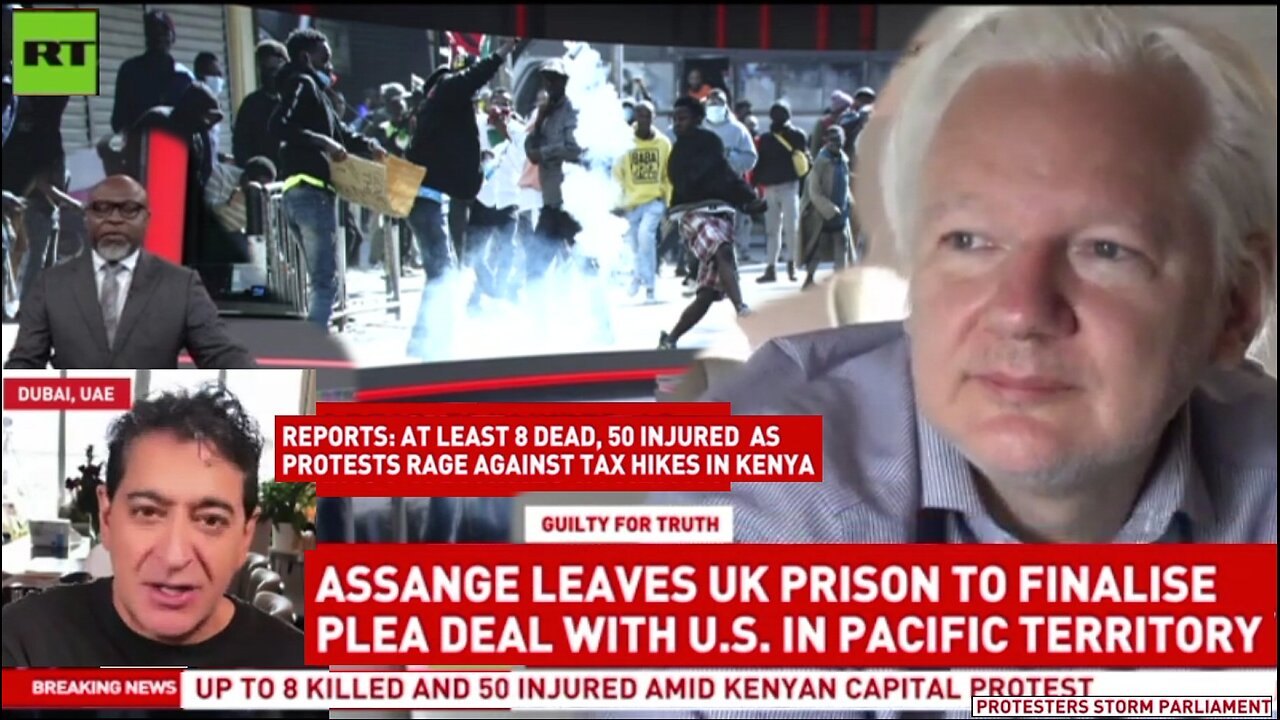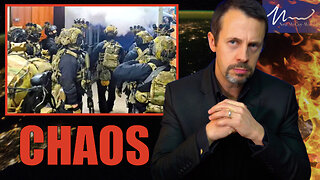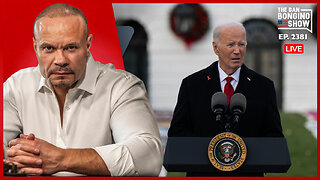Premium Only Content

RT News - June 25 2024 late Kenya in Chaos - Julian Assange Freed from Belmarsh
In Nairobi, Kenya, up to eight people have been killed as protesters have stormed the parliament. They are protesting tax hikes imposed by the government at the behest of the IMF as conditions for loans. Please see previous posts for more detail. MPs have locked themselves away from the protesters who passed a controversial bill (ready to be enacted into law) to increase taxes on the already cash-strapped citizens of Kenya. The country is rich in resources (gold, iron, steel, titanium, gemstones, water, and wildlife) and is a member of the British Commonwealth. Read this https://waronwant.org/sites/default/files/TheNewColonialism.pdf
see also https://www.kenyahighcom.org.uk/kenya-the-commonwealth
I found this interesting https://medium.com/@OxfamIFIs/how-the-imf-is-pushing-an-austerity-based-recovery-f19c6040e918
There is an article below about what's going on in Kenya
Lots of news about Julian Assange of course, far too much to post on here today, Mike and guests discuss.
Julian Assange "the world tomorrow" on Rumble https://rumble.com/search/all?q=rt%20the%20world%20tomorrow
also try https://rumble.com/search/all?q=Julian%20Assange%27s%20The%20World%20Tomorrow%3A%20%28E
There is probably more from this series but I can't find how to use the search better than this for now.
Short take: Deadly chaos in Kenya, where protesters storm the parliament and set key buildings on fire. That's as anger boils over the government's approval of IMF-pushed tax hikes. After 5 years incarcerated inside a maximum-security prison in the UK, the whistleblower Julian Assange is whisked out of the country, after striking a plea deal with the US. But not everyone's convinced it's a win win all around.
==============================================
Russian plane carrying Ukrainian POWs was downed by US-made missile – investigators 25 Jun, 2024 12:43
Military leaders in Kiev gave the order to fire the Patriot in the January attack, Moscow claims
Senior military officials in Kiev were responsible for shooting down a Russian transport plane that was carrying Ukrainian prisoners of war for an exchange earlier this year, Russia’s Investigative Committee said on Tuesday.
The Ilyushin Il-76M aircraft was downed by a US-made Patriot interceptor missile on January 24, according to Russian investigators. All those on board, including 65 POWs, three Russian guards, and six crew members, were killed in the crash.
The committee said it had collected enough evidence to accuse Ukrainian military commanders and the leadership of the country’s military intelligence directorate, the GUR. They “knew for certain” that a prisoner swap was due to happen and “ordered the destruction of the plane” nevertheless, officials claimed.
Russian investigators have collected over 110 fragments from two MIM-104 Patriot missiles at the crash site, including from the body of one of the victims, the statement said. Records from onboard cameras show one of the projectiles detonating next to the plane’s cockpit, while the second one reportedly missed its target and self-destructed.
Russian radar data identified a specific location in Ukraine’s Kharkov Region from which the missiles were fired by a single launcher, the statement said. Efforts are ongoing to establish the individuals responsible for “the organization of this terrorist attack,” it added.
The committee released a video showing its work at the crash site and later during a forensic analysis of the recovered fragments. One clip showed lasers beaming in front of the wrecked cockpit, as investigators determined the angle at which shrapnel from the alleged American-made missile had penetrated it.
Ukrainian officials have boasted of using Patriot systems against multiple Russian military aircraft. Shortly after the tragedy, the GUR claimed that the aircraft had not been given safe passage in the airspace near the front line.
Prisoner swaps between Russia and Ukraine continued after the incident. In the latest instance in late May, 75 Russian POWs were returned from Ukrainian captivity in exchange for an equal number of Kiev’s troops.
Days later, Russian President Vladimir Putin revealed that Moscow was holding 6,465 Ukrainian POWs, compared to 1,348 Russian military service members held by the other side.
==============================================
Russian proposal can end Ukraine conflict – Putin 25 Jun, 2024 10:00
Western politicians have dismissed the offer without even considering it, the president has said
Russia’s offer for a peaceful settlement of the Ukraine conflict is a realistic way to end the hostilities, but the West is simply ignoring it, President Vladimir Putin has said.
In a keynote foreign policy speech earlier this month, the Russian leader promised to order a ceasefire if Ukraine vows not to seek membership in NATO and withdraws its troops from all territories claimed by Russia. Kiev immediately rejected the proposal.
In an address to an international forum hosted by Russia this week, Putin said his offer should be carefully considered by interested parties.
”Unlike many Western politicians who didn’t even bother to get to the core of the initiative we proposed, participants of this forum, I expect, will study it thoughtfully and rationally and will see that it gives a real opportunity to stop the conflict and move to its political-diplomatic resolution,” a written welcome message from Putin said, as read on Tuesday by his foreign policy aide, Yury Ushakov.
Ushakov went on to say that Moscow is offering a “chance to at once stop the settlement of our differences on the battlefield and the loss of life,” adding, however, that the West wants to keep fighting Russia “to the last Ukrainian.”
“For now, the West-spurred military frenzy” is not subsiding, he lamented, citing Ukraine’s missile attack last Sunday which injured over 150 civilians and claimed at least four lives at a beach in Sevastopol, Crimea.
Moscow claims that Washington shares responsibility for the strike, since Ukraine used US-supplied ATACMS missiles with cluster munition warheads. Some Russian officials have argued that American military specialists must have been directly involved in the use of the sophisticated weapon. Mikhail Podoliak, an aide to Ukrainian leader Vladimir Zelensky, claimed that the beachgoers were “civilian occupiers.”
Ushakov stated that Russia has the overarching goal of creating an indivisible pan-Eurasian security system to replace the “Euroatlantic and Eurocentric models that are passing into oblivion.”
He added that it is time to seriously devise a way to ensure peace in the space “that covers Western and Eastern states and Russia in between them.” The participants of the forum – the Primakov Readings, named after the late Russian diplomat Evgeny Primakov – are among the experts who can accomplish this, Ushakov noted.
==================== EXCLUSIVE TO RT
Assange ‘buried alive’ for telling the truth – ex-Ecuadorian president to RT 25 Jun, 2024 09:31
Rafael Correa granted the WikiLeaks co-founder asylum in the country’s embassy in London in 2012
WikiLeaks co-founder Julian Assange should never have been jailed in the first place, former Ecuadorian President Rafael Correa has told RT in an exclusive interview.
Correa, who granted Assange asylum in his country’s embassy in London in 2012, spoke to RT shortly after the news broke that the Australian had been released from prison in the UK as part of a plea deal with the US Justice Department.
“Julian Assange is persecuted for telling the truth, not for lying. And he is the truth teller, the persecuted, the punished, the one buried alive in a prison, when the ones in prison should have been the war criminals,” Correa said.
In 2010, WikiLeaks released footage of a US military helicopter gunning down civilians in Baghdad three years previously, after mistaking them for armed insurgents. The attack resulted in 12 civilians being killed, including two children and two people working for the Reuters news agency. The video was part of a wider release of top-secret files by WikiLeaks, including documents connected to the US wars in Iraq and Afghanistan.
From 2011 to 2019, Assange took sanctuary inside the Ecuadorian Embassy in London due to fear of extradition to the US. When Ecuador’s next president, Lenin Moreno, revoked his asylum status, Assange was ejected from the embassy and arrested by British police. He then spent five years at the Belmarsh maximum-security prison in London.
Correa said he is “happy” that Assange has been released, but insisted he should have never been targeted in the first place.
“The real war criminals went unpunished,” Correa said. “He [Assange] should never have lost his freedom. On the contrary, he should have been recognized for his courage.”
=====================================
Protesters shot and killed in Kenya – reports 25 Jun, 2024 15:14
Police reportedly resorted to gunfire after failing to stop an angry crowd from entering parliament
At least eight people were shot and killed in Kenya on Tuesday after riot police clashed with anti-tax protesters in the capital, Nairobi, according to local media.
KTN News has published videos showing officers firing gunshots to disperse a crowd trying to storm the National Assembly as lawmakers passed a finance bill introducing controversial taxes. Reuters also reported that its correspondent counted at least five bodies outside the parliament after police began shooting. Tear gas and water cannons had already failed to stop the demonstrators.
The Kenya Human Rights Commission has stated that it witnessed the police shooting four people, killing one. “We strongly condemn the police killing. Such actions are unacceptable and constitute a grave violation of human rights. Justice and accountability are imperative. We will vigorously push for police accountability,” the NGO wrote on X (formerly Twitter).
According to several reports, the crowd “overwhelmed” the law enforcement present and made their way into the legislature, setting a section of it on fire. A police vehicle was also torched, local daily The Star reported.
“We want to shut down parliament and every MP should go down and resign,” a protestor identified as Davis Tafari told Reuters. “We will have a new government,” he said.
Youth-led protests broke out in Kenya last week in response to the government’s 2024 Finance Bill, which aims to raise an additional $2.7 billion in taxes to help reduce the country’s budget deficit. Protesters have been calling on MPs to withdraw the proposed increases – including an annual 2.5% tax on car ownership and a 16% tax on bread later removed from the legislation following public outcry.
Despite the outrage, lawmakers approved the Finance Bill on Tuesday, 195 votes to 106. The legislation now needs the signature of President William Ruto, who has promised to hold talks to address the youth concerns after at least two people were killed in the protests last week.
====== RELATED
Violent protests erupt in Kenya over controversial tax bill 21 Jun, 2024 10:18
One person has been killed and hundreds injured, rights groups have reported
“There have been five casualties from rubber bullet injuries, police tear gas canisters and batons. Six people were hit by cars while running away from police officers. There is confirmation of live shootings verified by the presence of spent cartridges,” the group stated.
On Thursday, riot police fired tear gas and water cannons to disperse thousands of demonstrators across the country, including some marching on a street near Kenyan President William Ruto’s residence in Nairobi, according to multiple reports.
The Kenyan Red Cross said in a statement on X (formerly Twitter) that its emergency team had treated 39 injured people in Nairobi, eight of whom were in critical condition and were evacuated to Kenyatta National Hospital for treatment.
Local daily The Star also reported that at least one person was shot and killed during the anti-tax protest along Moi Avenue in the capital late on Thursday. Rex Kanyike Masai, 29, reportedly died during treatment for a wound on his thigh at a hospital.
Kenyan Police Inspector General Japhet Koome issued a statement on Thursday warning that protests would not be permitted in critical government infrastructure, including the National Assembly, where lawmakers were debating the finance bill.
He declared that while citizens have the right to “assemble, demonstrate, and picket,” law enforcement officials will “neither condone nor approve efforts” by demonstrators to disrupt “ongoing parliamentary proceedings.”
Protests broke out in Kenya on Tuesday in response to the government’s 2024 Finance Bill, which passed the second stage of reading.
A parliamentary committee recommended on Tuesday that the government withdraw some new taxes proposed in the bill, including an annual 2.5% tax on car ownership and a 16% tax on bread, following a public outcry.
The government has justified the tax measures as necessary to reduce the country’s budget deficit, but protesters argue that they will be harmful to the economy and escalate the already high cost of living.
The finance bill is in response to the International Monetary Fund’s recommendation that Nairobi make a “sizable and upfront” fiscal adjustment in its 2024/25 budget to reduce state borrowing.
President Ruto, who won the 2022 elections, has faced repeated protests for allegedly failing to fulfill campaign promises and address the country’s high cost of living.
Several people were killed and dozens arrested last July when rallies led by Raila Odinga, leader of the opposition Azimio Coalition, against a slew of tax hikes turned violent in the East African country.
======= RELATED
The US chose this country to become its proxy in Africa. Will it be better off?
Kenya’s president is taking a risk by siding up to NATO 17 Jun, 2024 17:51
By Dr. Westen K. Shilaho, scholar of International Relations, University of the Witwatersrand, Johannesburg
President William Ruto was elected Kenya’s head of state in August 2022 and since then he has maintained his country’s relations with the West, especially Britain and the US. He has visited these countries two and four times respectively since his inauguration, and hosted Britain’s King Charles on the monarch’s first official visit abroad after his coronation. Ruto has also visited Israel, the foremost Western ally, and has publicly expressed support for the Jewish state, a stance at odds with the African Union (AU), which has condemned West Jerusalem over the war in Gaza. In contrast, Ruto has visited China, Kenya’s largest trading partner, just once within the same period. Initially, Ruto appeared to espouse Pan-Africanism, earning praise from admirers across the continent. He had decried Africa’s humiliation by the West, condemning the international financial architecture and other neocolonial tendencies that have contributed to Africa’s poverty, instability, and underdevelopment.
In due course, however, rhetoric has prevailed over commitment. In President Ruto, the West, specifically the US, has found a dependable ally in Africa. Ruto’s state visit to the US last month, the first in 16 years by an African head of state, was significant in this regard. Symbolically, it underscored Kenya’s longstanding relations with Washington, skewed as they are. The most prominent outcome of this visit was the US designation of Kenya as a Major Non-NATO Ally (MNNA). The US bestows this status to a country which, although not part of the North Atlantic Treaty Organization (NATO) bloc, has a deep strategic relationship with the US. Kenya will thus join Egypt, Tunisia, and Morocco, the three other African countries designated as such. In “Sub-Saharan Africa” (a problematic characterization because of its divisive and racist connotations), Kenya is the first country to be accorded this status, which raises its profile in US security, intelligence, and counterterrorism operations. In the run-up to the MNNA designation, American security and intelligence personnel had frequented Nairobi.
Diplomatically, the current US ambassador to Kenya, Meg Whitman, carries the moniker “Kenya’s President” owing to her preeminence in government functions. She boldly affirmed Ruto’s victory and dismissed claims by the opposition that Kenya’s transitional elections in 2022 were rigged. Like her predecessors, she is a ubiquitous public figure and freely comments on Kenya’s internal affairs. Her views are sought by Kenya’s political elite and local media. Whitman often attends and speaks at government functions and entertains the political elite at her residence on occasions such as American public holidays. Whitman gets along with Ruto as well as with the opposition. It would be ahistorical, therefore, to regard Ruto’s proximity to the West as odd. Kenya has consistently aligned itself with the West since the Cold War, which accounts for an instinctive Western imprint on the psyche of its political elite. In a word, Ruto is not an aberration but representative of the Kenyan elite.
The MNNA designation does not oblige the US and Kenya to come to each other’s aid in the event of an attack, but allows Kenya access to US loans for the purchase of sophisticated American weaponry such as depleted uranium ammunition. From a realist standpoint, this seems beneficial to the Kenyan state because it could modernize its defense, intelligence, and security capabilities. However, for a country beset by poverty, joblessness and inequalities that manifest through poor healthcare, a wobbly education sector, food insecurity and poor infrastructure, spending on military hardware is imprudent and a misplaced priority. The MNNA designation is weighted in favor of the US. It serves its military industrial complex and at the same time sinks Kenya further into debt given that the advanced loans accrue interest. It is imperative that the Kenyan government appreciates that the outmoded state-centric approach to security needs to give way to investment in people. Security, for Kenya, a developing country, is about responsiveness, not ensnaring itself in military adventurism and grandiose security acquisitions for rent extraction given the opacity of such deals. Kenya faces no imminent attack other than internal risks related to bad governance and neglect of the poor.
Of concern is that, courtesy of the MNNA status, the US is free to place its war reserve stockpiles on Kenyan territory. Besides its military base in Kenya’s coastal town of Lamu, the US will have more access to Kenyan territory, especially in the northeastern region bordering Somalia, for military operations. It could turn Kenya into something of a US satellite state which would puncture Ruto’s Pan-Africanism ideals and further desecrate Kenya’s sovereignty. Such an unflattering status does not secure Kenya, especially when viewed through the “war on terror” lens. It is curious that in Kenya, the US has a springboard for its military escapades in Africa and the Middle East at a time when countries in the Sahel have disengaged militarily from the West and have asked Western powers, including the US, to close their military bases and exit.
It is noteworthy that this MNNA designation comes on the cusp of the imminent deployment of about 1,000 Kenyan police officers to Haiti to combat runaway gangsterism. Although Kenya’s contingent will be part of a UN mission, it is sponsored and spearheaded by the US. The deployment became certain after Kenya acceded to the US request to lead the mission. This shows that the MNNA designation has tightened Kenya’s involvement in US global security and intelligence strategy as a proxy. Specifically, it deepens US-Kenyan relations in counterterrorism in the Horn of Africa and the Gulf of Aden. Hence in the wake of the MNNA designation, Kenya joined the US in its fight against the Houthis, who are accused of attacking ships in the Red Sea in retaliation against Israeli atrocities in Gaza. Furthermore, Kenya agreed to host Houthi captives. Nairobi also pledged to continue supporting the US in its antiterrorism efforts in Somalia. As such, Kenya is a willing partner in US military adventurism, security, and intelligence operations, oblivious of the consequences. There is likely to be a backlash from militant groups targeted by the US.
Ruto’s immediate predecessors engaged China and in return received loans for infrastructure. In as much as Sino-Kenyan relations heightened in the past 20 years, it did not denote an ideological shift on Kenya’s part. At the time, Kenya’s relations with the West dimmed and hardly any mega bilateral agreements were signed. Ruto has portrayed himself as a pragmatist who is neither facing West nor East but forward looking. He seems unkeen on enhancing Sino-Kenya relations despite this seemingly pragmatic approach. Although Ruto has visited China, the foremost emerging power, the US shadow over government policy is undeniably conspicuous. Ruto has enlisted US tech companies in advancing Kenya’s digital industry and engaged the US in apparel, agriculture, climate change and infrastructure. Moreover, the World Bank and IMF have engaged him on several occasions in the wake of which retrogressive measures such disinvestment in education, agriculture, and healthcare, coupled with punitive taxes have been witnessed. These neoliberal policies have eviscerated Africa’s economies over the years and spawned poverty. Besides, Ruto openly advocates the export of Kenya’s labor force to the Middle East, Europe, and North America in exchange for remittances. How could such a policy on human resource spur Kenya’s prosperity?
Kenya’s international relations should be guided by its national interests and not the geopolitical anxieties of the US, a hegemon, or any other country. Although the concept of national interest sounds nebulous and is often interpreted from a self-serving perspective by the political elite, it substantively means that the wellbeing of citizens must be central to Kenya’s foreign policy.
.................. ......... "The statements, views and opinions expressed in this column are solely those of the author and do not necessarily represent those of RT. "
========================================
Holocaust claim against Hungary heads to top US court 24 Jun, 2024 22:13
The nation’s highest body has agreed to intervene in a case over property confiscated from Jews during World War II
The US Supreme Court has agreed to rule on whether Holocaust survivors and their heirs can seek compensation through the American judicial system for property that was confiscated from them in Hungary during World War II.
The high court revealed on Monday that it will intervene in a lawsuit filed 14 years ago by Jewish Holocaust victims against the Hungarian government and its national railway. At issue is whether an American court has jurisdiction over the matter. Supreme Court justices are expected to hear arguments from both sides later this year.
The dispute goes back to 1944, when around 434,000 Hungarian Jews were deported on state-run trains, primarily to the Auschwitz death camp in Nazi-occupied Poland, over a two-month period. Most of the victims were killed at Auschwitz. At the time, the Hungarian government was cooperating closely with Nazi Germany, which was losing ground to Soviet Red Army forces in the east and Allied forces in France.
The class-action lawsuit demands compensation for property that was seized from the deportees. US law generally shields sovereign nations from legal liability in American courts, but the plaintiffs have argued that their case qualifies for an exception regarding expropriations that violated international law.
However, that legal exception also requires that the property in question have a “commercial nexus” with the US. Plaintiffs for the Hungarian side have argued that the US legal system has no jurisdiction over the issue. They warned that violating the principle of sovereign immunity would “serve as a beacon for plaintiffs around the world to litigate all matter of grievances in domestic courts, and needlessly entangle the United States in disputes in which it has no legitimate connection.”
Just three years ago, the Supreme Court ruled in the German government’s favor in an apparently similar case involving religious artwork that the Nazis acquired from Jewish art dealers who fled the country.
===== RELATED from 14 Feb, 2023 16:33
Hungary wants apology for ‘outrageous’ claims by US official
Washington’s UN envoy has made “baseless” allegations regarding anti-Semitism, Budapest says
Hungary blasted the US over what it says are “outrageous” and “false” accusations of anti-Semitism, leveled by a senior diplomat against Budapest. Foreign Ministry spokesman Mate Paczolay added that while Washington later admitted the mistake, it has not issued a public apology.
On Tuesday, speaking to the Index news site, Paczolay slammed Linda Thomas-Greenfield, the US ambassador to the UN.
During a UN event on Thursday, Thomas-Greenfield cited Hungary as an example of a place where anti-Semitism is on the rise, noting that “a Holocaust memorial was vandalized” there. In a transcript later released by Washington’s mission to the UN, this phrase was crossed out.
An explanatory note said that Thomas-Greenfield was referring to a statue in Sweden of diplomat Raoul Wallenberg, who saved thousands of Jews from the Nazis in Hungary during WWII.
“It is quite outrageous that the US ambassador made baseless and false claims about Hungary in front of the… public,” the spokesman said, adding that the Hungarian delegation was not given an opportunity to speak, and was able to complain only after the event had ended.
Paczolay noted that “the American side admitted behind closed doors that it made a mistake.” However, it never issued “a clarifying or an apologetic statement,” which he said is the “minimum expectation in diplomacy” in this type of situation.
If the mistake was indeed unintentional and resulted from a “lack of preparation,” then it is “incomprehensible why the representation does not issue a statement in order to resolve the situation,” he said.
Earlier this month, Hungarian-US relations were marred by another diplomatic spat. Hungarian Foreign Minister Peter Szijjarto called out David Pressman, Washington’s ambassador to Budapest, over alleged “interference” in the nation’s internal affairs.
Pressman had commented that local decision-makers “continue to push policies endorsed by [Russian President Vladimir] Putin,” referring in particular to Hungary’s opposition to the Western sanctions on Moscow over the Ukraine conflict.
=======================================
ICC a ‘Western hybrid war’ tool – Moscow 25 Jun, 2024 15:31
The Hague-based International Criminal Court (ICC) has issued arrest warrants for top Russian officials, Sergey Shoigu and Valery Gerasimov
Moscow has denounced the Hague-based International Criminal Court’s (ICC) decision to issue arrest warrants for two top Russian defense officials, branding the institution a mere tool of the West's “hybrid war” efforts.
The ICC on Tuesday issued arrest warrants for ex-Russian Defense Minister Sergey Shoigu and the current chief of the General Staff, Valery Gerasimov, accusing the two of committing “alleged international crimes” during the Ukrainian conflict.
Russia’s Security Council has denounced as “void” the court’s move, pointing out that its jurisdiction does not extend to Russia.
“The decision of the Pre-Trial Chamber of the ICC against the Secretary of the Russian Security Council Sergei Shoigu is void. This is just hot air, since the jurisdiction of the ICC does not extend to Russia, and [the decision] was made as part of the West’s hybrid war against our country,” the council said.
The two top military officials are accused by the ICC of committing “international crimes,” namely “directing attacks at civilian objects,” as well as “causing excessive incidental harm to civilians.” The charges stem from Russia’s campaign of strikes against Ukrainian energy infrastructure, which Moscow regards as dual-purpose strategic installations rather than purely civilian facilities.
Earlier this year, the ICC also targeted two top Russian military commanders, Lieutenant-General Sergey Kobylash of the Long-Range Aviation fleet and Admiral Viktor Sokolov of the Black Sea fleet. The charges against the commanders was also a result of air strikes against Ukrainian infrastructure.
The Hague-based institution has taken multiple steps against Russia amid the Ukraine conflict, most notably by issuing an arrest warrant for Russian President Vladimir Putin last spring. The president is accused of “unlawful deportation” of Ukrainian children to Russia.
Moscow, like many other countries, including the US, does not recognize the authority of the ICC and its actions hold no legal power in Russia.
==================================================
Russian court seizes $16 million from disgraced oligarchs 24 Jun, 2024 15:14
The funds belonged to former Yukos executives Mikhail Khodorkovsky and Platon Lebedev
Moscow’s Meshchansky District Court has ordered the seizure of 1.4 billion rubles ($16 million) from exiled former tycoon Mikhail Khodorkovsky and his one-time business partner Platon Lebedev, Russian media reported on Monday.
The suit against Khodorkovsky, Lebedev, and the defunct Siberian Leasing Company was initiated last month by the Russian Prosecutor General’s Office. The defendants were accused of failing to pay back restitution to the government for the embezzlement of funds tied to former oil giant Yukos, which they owned.
The court ordered the funds that remain deposited in Trust Bank accounts to be transferred to the Russian authorities, TASS reported.
Representatives of Khodorkovsky and Lebedev reportedly did not appear before the court. Trust Bank and the Federal Bailiff Service raised no objections to the prosecution’s demands.
Khodorkovsky founded the now-defunct Yukos oil company as a result of a controversial auction of state assets following the collapse of the Soviet Union in the early 1990s. It rapidly became one of Russia’s most valuable companies.
In 2003, Khodorkovsky, once the country’s richest man, was arrested and charged with tax evasion and fraud. He was sentenced to 14 years in prison but was released after ten years and ten months, when President Vladimir Putin pardoned him on humanitarian grounds. The former tycoon left Russia shortly after he was freed.
Lebedev, who was named as a co-defendant in the Yukos case, was found guilty of embezzlement, tax evasion, and money laundering. He served nine years in prison and was released in early 2014.
========= RELATED from 20 Feb, 2024 15:22
Dutch court denies Russia’s appeal of $50bn Yukos award
Moscow had insisted that foreign courts did not have jurisdiction in the case
The Amsterdam Court of Appeal on Tuesday dismissed Russia’s latest legal challenge in the high-profile Yukos case and upheld the enforcement of a $50 billion award to the former shareholders of the now-defunct oil company.
Energy giant Yukos, once owned by ex-oligarch Mikhail Khodorkovsky, collapsed in 2006 after the company failed to pay billions of dollars in back taxes. The latest ruling concerns a decade-long trial at the International Court of Arbitration in The Hague, which, in 2014 ruled that Russia had violated its international obligations by taking steps to bankrupt the massive oil company in the early 2000s. Moscow has insisted that the dispute with the shareholders was outside the jurisdiction of any foreign court.
According to a statement on Tuesday by the Amsterdam court, Russia’s claim that the shareholders had committed fraud during the arbitration proceedings was made too late. It further said that even if the claim had been considered, it would not have changed the verdict on the arbitration award. “The conclusion is that the arbitration awards remain in force,” the statement reads.
Back in 2014, the arbitration tribunal ordered Russia to pay $50 billion in compensation to the former controlling shareholders of Yukos: Hulley Enterprises and Veteran Petroleum based in Cyprus and Yukos Universal based in the Isle of Man. The Dutch Supreme Court later overturned the ruling.
The ex-shareholders, who claim that the Russian government drove the company to bankruptcy for political reasons, later initiated proceedings in several jurisdictions, including the US.
The private company Yukos was formed after a controversial auction of state assets following the fall of the Soviet Union and quickly became one of the world’s most valuable companies.
The founder of the oil and gas giant, Mikhail Khodorkovsky, was once Russia’s richest man. However, he was arrested and charged with fraud in 2003 and was imprisoned until 2013. His claim that his arrest was politically motivated is widely accepted by the Western media.
Moscow denies the charges and says that foreign courts did not consider that national laws governing fraud and other wrongdoing might have been broken. In 2020, Russia’s Constitutional Court ruled that Russia could refuse to pay any settlement imposed by the Dutch judges. The basis for the arbitration is the terms of the Energy Charter Treaty, which Moscow signed but never ratified.
======= RELATED from 20 Nov, 2023 12:40
US court backs 1990s Russian oligarchs
The former owners of the defunct oil major Yukos are seeking $50 billion from Moscow
A US court has dismissed Russia’s sovereign immunity defense in the high-profile Yukos case and upheld the enforcement of a $50 billion award to the former shareholders of the now-defunct company, RBK business daily reported on Sunday, citing documents.
Energy giant Yukos, once owned by ex-oligarch Mikhail Khodorkovsky, collapsed in 2006 after the company failed to pay billions of dollars in back taxes.
According to the report, the US District Court for the District of Columbia has rejected Russia’s request to recognize the $50 billion dispute with former Yukos shareholders as not subject to jurisdiction. On November 17, Judge Beryl Howell denied Russia’s motion, filed back in 2015, stating that the dispute with the shareholders was outside the jurisdiction of any foreign court.
“This case can now proceed to the merits to determine whether the final awards [issued in 2014 by the Permanent Court of Arbitration in The Hague - RBK] should be enforced according to the New York Convention,” the judge reportedly wrote, commenting on the order.
The ruling concerns a decade-long trial at the International Court of Arbitration in The Hague, which, in 2014, ruled that Moscow had violated its international obligations by taking steps to bankrupt the massive oil company in the early 2000s. The arbitration tribunal then ordered Russia to pay $50 billion in compensation to the former controlling shareholders of Yukos: Hulley Enterprises and Veteran Petroleum based in Cyprus and Yukos Universal based in the Isle of Man. The Dutch Supreme Court later overturned the ruling.
The ex-shareholders, who claim that the Russian government drove the company into bankruptcy for political reasons, later initiated proceedings in several jurisdictions, including the United States. Russia is still challenging the decisions of the Hague court in the Dutch judicial system.
The private company Yukos had been formed after a controversial auction of state assets following the fall of the Soviet Union and quickly became one of the world’s most valuable companies despite investors picking it up for a fraction of its worth.
The founder of the oil and gas giant, Mikhail Khodorkovsky, was arrested in 2003 on fraud charges. Once Russia’s richest man, Khodorkovsky was charged and imprisoned until 2013. Khodorkovsky claimed his arrest was politically motivated – an assessment widely accepted by the Western media.
Moscow denies the charges and says that foreign courts have not considered that national laws around fraud and other wrongdoing might have been broken. In 2020, the Constitutional Court, one of Russia’s highest judicial authorities, ruled that Russia could refuse to pay any settlement imposed by Dutch judges. The basis for the arbitration is the terms of the Energy Charter Treaty, which Moscow signed but never ratified.
===============================================
-
 LIVE
LIVE
G2G Gaming Channel
6 hours agoI heard Smite, So Im here! #RumbleTakeOver #RumbleGaming
144 watching -
 15:36
15:36
Neil McCoy-Ward
1 hour ago🚨 Emergency Martial Law Declared, Special Forces Deployed...
12.7K2 -
 LIVE
LIVE
The Charlie Kirk Show
1 hour agoDemocrat Billionaires in Crisis + Fixing the Migrant Crisis | Blagojevich, O'Brien, Metaxas| 12.3.24
8,320 watching -
 1:01:07
1:01:07
The Dan Bongino Show
4 hours agoBiden’s Reign Of Destruction Isn’t Over Yet (Ep. 2381) - 12/03/2024
611K1.26K -
 1:59:02
1:59:02
Steven Crowder
4 hours ago🔴 COVID Chronicles: The Hidden Truths of the Pandemic Exposed
336K181 -
 LIVE
LIVE
SoundBoardLord
3 hours agoMulti-Gen Don Juan in Full Force!
208 watching -
 1:08:54
1:08:54
MTNTOUGH Fitness Lab
3 hours agoSheriff Mark Lamb Exposes America’s Border Crisis and Cartel Infiltration | MTNT POD#93
8.75K1 -
 8:52
8:52
Cooking with Gruel
11 hours agoToasted Brown Butter Cornbread
10.8K -
 1:01:44
1:01:44
The Rubin Report
3 hours agoJon Stewart Loses His Cool with Democrats for Saying This About Hunter Biden Pardon
49.7K46 -
 1:52:47
1:52:47
Benny Johnson
3 hours agoLibs BACKSTAB 'Senile' Biden | Trump Tells Trudeau USA Is Going To Make Canada '51st State!’ 🇨🇦
60.1K68